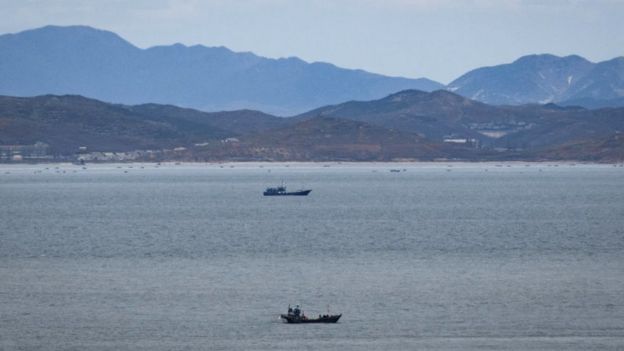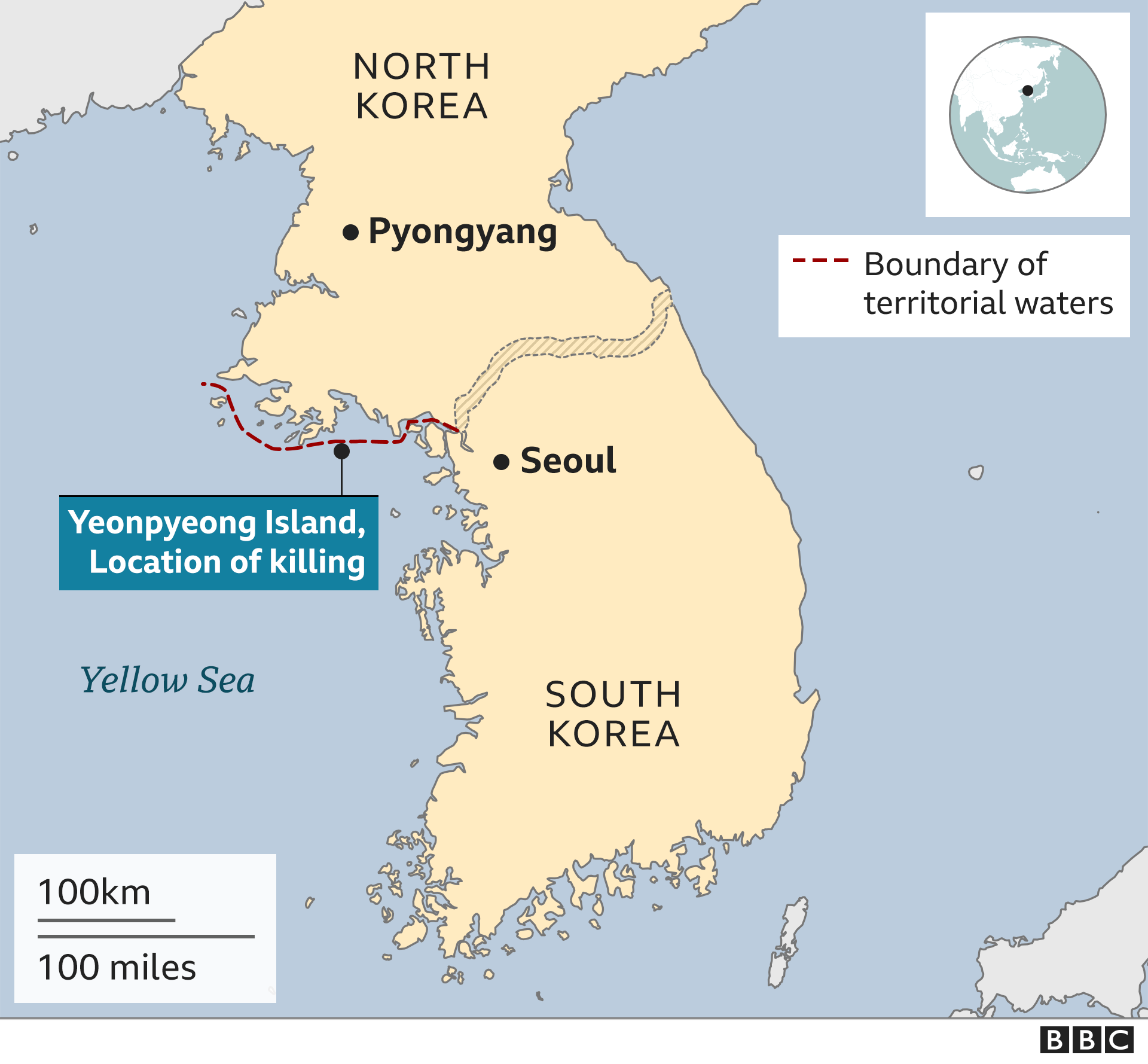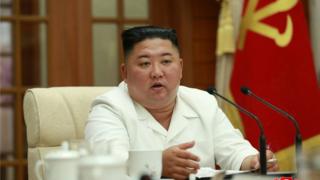Warming Relations Between South and North Korea
"Our military strongly condemns such an atrocity, and strongly demands North Korea provide explanations and punish those who are responsible [for the death of a South Korean defector]."General Ahn Youngho, chief of operations, South Korean Joint chiefs of Staff
Mr Kim said the incident should never have happened Reuters "Chairman Kim Jong Un asked to convey his feeling that he is greatly sorry that an unexpected unsavory incident occurred in our waters which hugely disappointed President Moon Jae-in and compatriots in the South.""The troops could not locate the unidentified trespasser during a search after firing the shots, and burned the device [flotation device he was carrying] under national emergency disease prevention measures."Suh Hoon, United Front Department, North Korea
 |
| The South Korean island of Yeonpyeong sits near the border with the North Getty Images |
Not however, according to the North's account, where, though they had most unfortunately for the defector, if that is what he was -- the troops responded to their order by shooting the man, it was the flotation device he carried that was then doused in gasoline and set afire, not the man himself. A puzzling scenario; leaving the man and his life jacket intact, but burning the flotation device he carried with him for additional bouyancy.
No matter, the North's leader attests to feelings of profound regret at this egregious error in judgement. The rarity of this conciliatory response seems entirely out of character from the bombastic belligerence that usually is associated with the irascible and volatile Mr.Kim. But, as is explained the incident occurred at a time when both President Moon and Chairman Kim have been getting along rather famously in their friendly diplomatic re-engagement talks presumably leading inevitably to peace.
 |
| People watch a TV showing a file image of North Korean leader Kim Jong Un, left, and South Korean President Moon Jae-in during a news program at the Seoul Railway Station in Seoul, South Korea, Friday, Sept. 25, 2020. North Korean leader Kim apologized Friday over the killing of a South Korea official near the rivals’ disputed sea boundary, saying he’s “very sorry” about the incident he called unexpected and unfortunate, South Korean officials said. (AP Photo/Ahn Young-joon) |
The hope was further expressed that the incident would not undermine recent moves to foster trust between the two and Mr. Suh spoke of letters exchanged between President Moon and Chairman Kim where Moon praised Kim's "strong resolve to save lives" and manage anti-virus and flood recovery operations. A following September letter saw Kim expressing the belief that Moon would win the battle against the coronavirus and "good things" would result.
As for the unfortunate death of a most unfortunate man, it was truly regrettable, and truly "unpardonable" as President Moon put it. But his critics hold him responsible for failing a citizen's life and being too forgiving of North Korea. Over ten shots were fired by the North's soldiers at the man when he attempted to flee, admitted Mr. Suh. But the North did not burn his body, only a flotation device, in line with anti-virus protocols.
That the man was murdered is undeniable. That it was an event quite in accord with the manner in which North Korea frequently treats their southern counterparts is also par for the course. What is different and which may signal a sea change in the diplomatic-political atmosphere is Chairman Kim's admission and his apparently sincere regrets and promises that such an event would never again occur. That is something worth building on.

Labels: Conciliation, Diplomatic Overtures, North Korea, South Korea, Violent Actions


<< Home